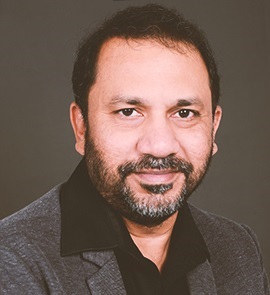Starting Out Into the E-Learning Field!
I had just decided to pursue e-Learning as a professional career. I seem to love all I was reading and seeing and the future of this in my hands all seem to be vivid... I want this! Unfortunately, the more I read about e-Learning and saw what other Instructional Designers and e-Learning professionals did, the less confident I became I could do this. For one, I got intimidated by their years of practice and experience, which translated to their quality of work and articles! Several questions began to pop into my head: Where do I start from? What skills do I need? Do I have the necessary academic qualifications? What should I do now and how will I go about it?
Starting out I found may be a challenge for many beginners who want to go into the E-Learning field. They become overwhelmed by the volume of work already existing and wonder where to begin, how to begin and if at all, they can have a place in the field. Here are a few tips I've gleaned in the past year of being in this great and growing field and eventually launching out...
- Background: Technical & Education VS Desire
While I related with several professionals in the E-Learning field, reading their stories and studying their professional profiles, I found that there are two major academic backgrounds where they all come from. Quite a number and surprisingly a larger percentage of people started out from the education background. I found several had degrees in educational training, cognitive learning, psychology of learning, adult education training and such degrees and experiences. I found a few others from the computer technical background with programming skills, graphic design, web development, general computer skills etc. I was however surprised, that though these academic backgrounds are useful now for them, many of them are in e-Learning not because of those backgrounds but for a strong desire to learn and help others learn! I found desire to be one striking thing while they all speak of their journey and discovered that they loved it, wanted it and pursued it. They only augmented their skill as they needed it in their work. - Start from where you are
This was indeed not as difficult as I imagined it would be. I thought I would need plenty of skills, plenty of education, plenty of certification and since I didn't have much at that time, I thought it would be difficult. Then I decided to simply take a template and work around it, creating something similar but with a different content... That was it! The excitement of success at first try was so much I attempted the second and third and several afterwards. Don't be intimidated by the expertise from professionals, every professional was once a beginner! - Network with professionals
This was a great help for me. I found and joined e-Learning communities and groups and interacted with professionals in and outside the groups. One of such helpful communities for me was the E-Learning Heroes Community and it was a great experience connecting with e-Learning heroes, seeing the work, being able to ask questions, and learn from their experiences and expertise. Another way is professional networks like LinkedIn, Twitter and following blogs of these professionals. - Desire and Seek Feedback from Professionals
This was a good asset for me as I wasted no time in looking for feedback from those who knew better. For every submission, I enjoyed hearing feedback to my work, and learnt by making adjustments where necessary. If I found an entry or a work by a member, I sought to find out how it was done and that helped me to learn and develop quite a number of skills I didn't have before. - Start a Blog and share your Experience
This was perhaps the most difficult for me but it has been fun and very rewarding. It was a very good way to think through, put together and document my experience and learning. I wasn't much interested in presenting new content or writing about a new area, but I just wanted to write about what I was learning and I was learning a lot! That made my learning sink deep, practical application became easy and I could then share with those in my own learning network! I blog at iTrysting. - Seek to improve skill set
This was my final step toward the end of the year as I began to search for ways to increase my skill set and there are several ways to do this. For me, I decided for MOOCs, YouTube tutorials and how-to articles and posts on blogs. Since these are free, I have engaged them to improve my skill set in the past year. Another way is to opt for a formal certificate or degree program either online or face-to-face; this however will cost you something but it will be worth it eventually!
After 8 months of practicing these, I'm not a professional yet but I'm not a complete novice anymore either. I've learnt quite a lot and have grown in the field. With these, I'm sure you can take that first step and very soon, you'll discover you're on the path to professional expertise in the field!









